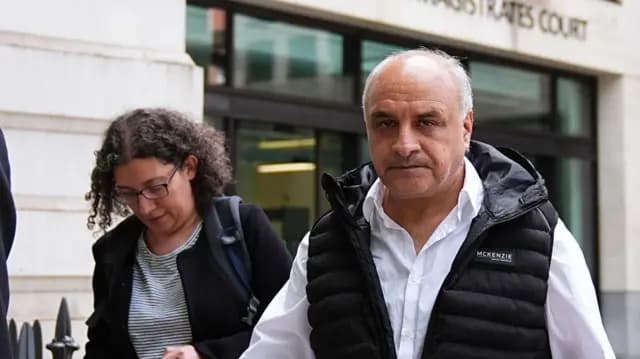Man Who Attacked Qur'an Burner Receives 20-Week Suspended Sentence

Moussa Kadri, 59, has received a 20-week prison sentence, suspended for 18 months, for attacking Hamit Coskun, who publicly burned a copy of the Qur'an outside the Turkish consulate in London on February 13. Kadri, who used a knife in the assault, told police he was "protecting his religion" following the incident. The sentencing has ignited a renewed debate regarding freedom of expression and the legal response to religiously motivated actions and reactions in the UK.
During the February 13 protest, Kadri approached Coskun, who was setting the Islamic text alight while shouting "Islam is religion of terrorism" and "Qur'an is burning." After a brief confrontation, Kadri returned with a knife, slashing at Coskun and stating, "Burning the Quran? It's my religion, you don't burn the Quran." He later pleaded guilty to assault and possessing a bladed article in a public place.
Hamit Coskun, 50, was himself convicted in June of a religiously aggravated public order offence for his protest. He was fined £240, with District Judge John McGarva stating Coskun's actions were "highly provocative" and "motivated at least in part by a hatred of Muslims." Coskun, who is half-Kurdish and half-Armenian, maintained his protest was against the Turkish government and an exercise of free speech.
The disparity in sentencing and the circumstances surrounding both cases have drawn significant public and legal commentary. Commentator Adrian Hilton expressed strong concern on social media, stating, > "Whatever you think of Hamit Coskun's Qur'an-burning, it is unbelievable that a Muslim armed with a knife who is attempting to murder the ‘blasphemer’ is not given a custodial sentence. It seems the appeal to “I protect my religion” is mitigating." This sentiment reflects broader anxieties among free speech advocates, including the Free Speech Union, who have criticized Coskun's conviction as a "de facto blasphemy law" and voiced dismay over Kadri's suspended sentence, suggesting it might embolden similar actions.
Despite the abolition of blasphemy laws in England and Wales in 2008, critics argue that religiously aggravated public order offences are being applied in a manner that chills free expression, particularly concerning religious criticism. Kadri's defense emphasized his "heat of the moment" reaction to what he perceived as a "deeply offensive act" on a holy book. Meanwhile, Coskun's legal team and organizations like the Free Speech Union and National Secular Society are actively pursuing an appeal against his conviction, aiming to challenge what they perceive as an infringement on fundamental free speech rights and to prevent the reintroduction of blasphemy codes.